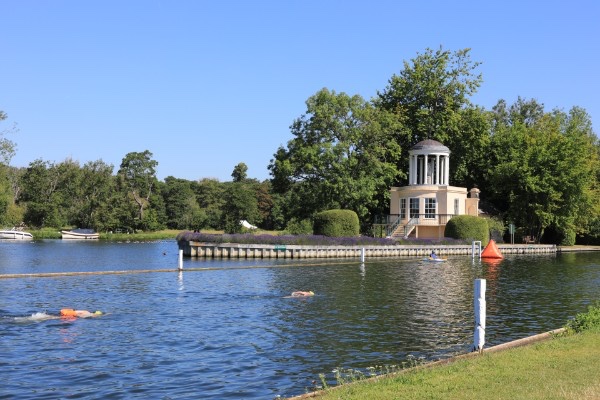The current period of hot, dry weather in the UK should serve as a warning sign that our use of water needs wholescale change.
July 2022 was the UK’s driest since 1935, with England experiencing just 35% of its average rainfall for the month. In East Anglia, Southeast, and Southern England, it was the driest July on record[i]. The Climate Crisis means we can expect these drier, hotter summers to become the norm.
Christine Colvin, Advocacy & Engagement Director at The Rivers Trust, says: “The hosepipe ban is a necessary short-term measure in many areas of the South and East of England under extreme water stress. However, we need to start thinking much more strategically about how we are going to cope better in the future with long term measures. Historically, water companies have relied on being able to withdraw more water from rivers and aquifers in times of drought, but our rivers will die if that continues, under the conditions we can now expect.
“The water industry has waited too long to start implementing hosepipe bans. England has experienced a very dry year so far, with July being the driest ever and including our hottest day. We are now months into a prolonged drier period and we’ve seen reservoir levels dropping for some time, with high demand. But hosepipe bans are really just the tip of the iceberg in terms of dealing with long-term water scarcity in this country.”
To tackle this grave issue, The Rivers Trust is calling for:
Accelerated water metering for households – implementing smart metres for water in the same way as we do for energy will allow people to better understand their domestic water use and will help to identify leaks. A social tariff could be brought in to ease the burden on lower income households.
An urgent, rapid reduction in leaks from water infrastructure – In 2021, 2.3bn litres were lost from our water system each day due to leaks.
Support, incentives, and guidance for households to be able reduce water usage permanently – examples include the installation of water butts, grey water recycling, low-flush toilets, and water-wise gardening.
Widespread implementation of sustainable drainage – incorporating features such as rain gardens, wetlands, and permeable pavements as part of a large-scale green infrastructure would help to build up local stores of water underground which can gradually recharge watercourses over time, reducing strain on them during drier months.
Colvin added: “The UK uses more water per capita than any other country in Europe, and this has to change. Part of our current issue with low water levels leading to measures like hosepipe bans is that we still think of this as a wet country, treating water as an infinite resource. It’s not viable to meet our current consumption patterns in the same way in the future, so water must be treated as the most precious resources – after all, it is the source of all life.”




